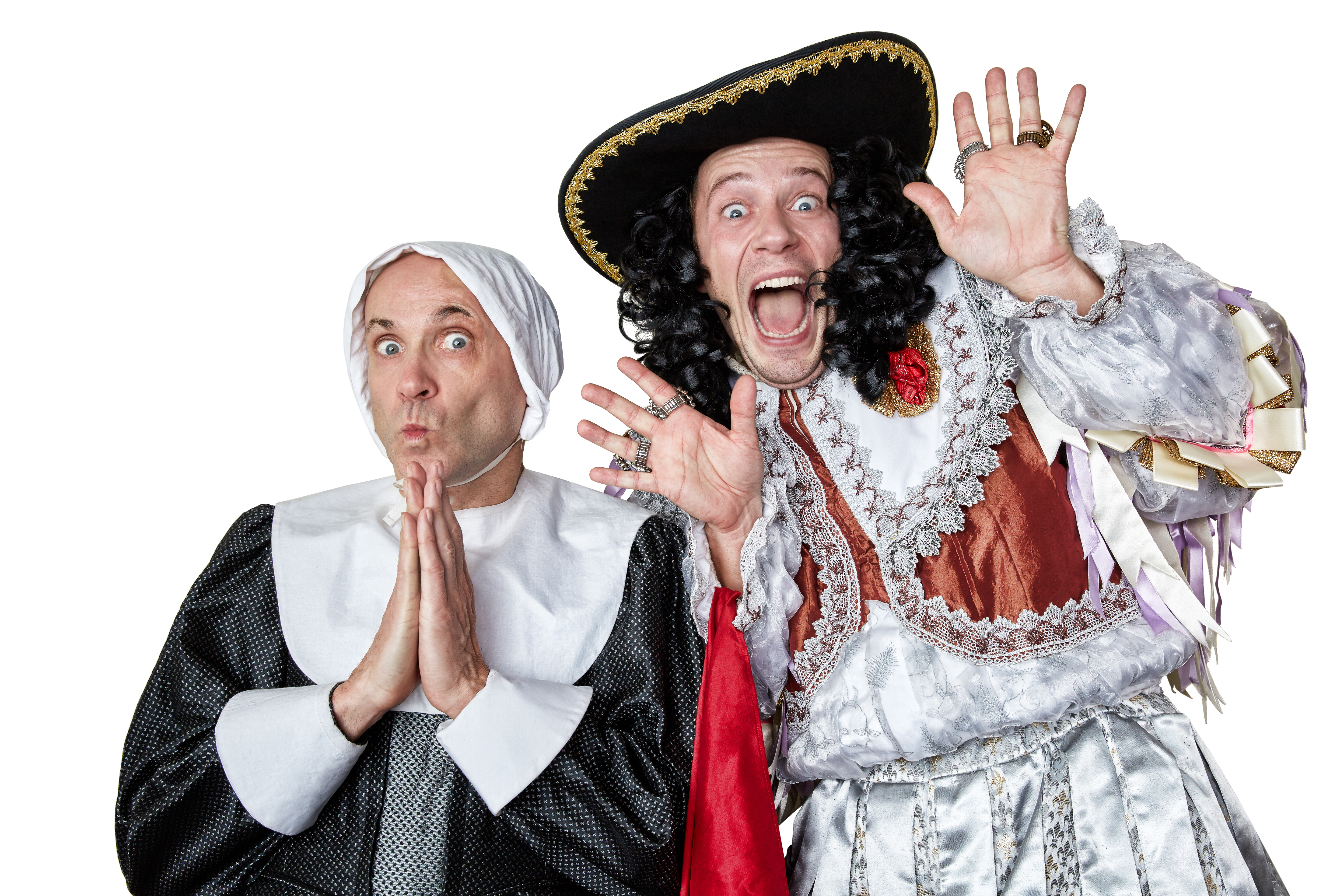The best selling author of Horrible Histories tells us why his books and plays break the mould of historical non-fiction
What do you think it is about the Horrible Histories stage shows that has made them such a worldwide success?
It attracts a lot of schools because it’s educational as well as entertainment, which gives it a good core audience. Of course the books themselves are a well-known brand so people who wouldn’t normally go to the theatre see it advertised and think ‘Oh, we can see it in a different format, without having to read the books.
What can people expect from Barmy Britain – Part Three?
We’re going back to the Stone Age, which is further than we’ve been back before, and we go right through to World War II. We meet some quirky characters like Lord Nelson and discover remarkable true stories, like the fact that Nelson had to have a medical certificate to get compensation for the loss of his eye and arm.
How different is it writing the theatre shows compared to writing the books?
It’s much, much easier. I’m a professional actor and I started writing plays long before I started writing books. With plays you perform them, pack the costumes away and they disappear, so I started writing my plays into books to have something more concrete. So really I’m just going back to my core skill – writing plays.
The Horrible Histories books are not just designed just for children, adults can gain just as much. Can the same be said of Barmy Britain?
Yep. It’s the parents who write to me more often than the children. They say; ‘it’s not just the fact that we enjoyed the show but we came away and we learned something!’ I don’t know why they’re so surprised, it’s obvious that it’s edutainment – you learn as you enjoy.
I’ve always believed if you want to educate somebody you’ve got to engage them first. If they’re switched off and not paying attention, they learn nothing at all. So as long as you’re entertaining them then you can slip in the facts almost unnoticed and they’re learning accidentally.
Horrible Histories has changed the way children in particular think about history. Was this your aim when you initially set about writing the books?
What I wanted to do was write some entertaining books. It started as a joke book with some facts, but the facts were more interesting than the jokes. I don’t suppose I thought I was creating a new genre really, but it seems like we did.
I never think of them as history books, I think of them as books about people, which is the most fascinating subject in the world. That’s what Horrible Histories is about – looking at human behaviour and trying to understand it. It’s not the same as a pure history book, which explores facts and consequences of certain actions. I’m interested on a very personal level about the way people behave.
Previously you have mentioned that you don’t approve of your books being in schools. Why is this?
Because it’s alternative education. I’m there to do what the schools can’t do and now the schools are adopting me, it’s shocking really. The schools should butt out and have nothing to do with my books. My books are anti-establishment; the schools are establishment, so why on earth are they taking on board anti-establishment material? I can’t see the logic of teachers wanting to use my books when they are anti-school, anti-establishment and the teachers are exactly the opposite. The other thing, which is more selfish, is I don’t want my books to be perceived by my readers as school books. They’ll lose their cool. They’ll lose their street-cred.
Do you think that schools should change the way they teach history?
I don’t know, I’m not interested in schools; I don’t care what they do. Schools are an utter waste of 12 years of a child’s life, they should be closed down. So I don’t care what schools do. They’re obliged to teach what a bunch of Eton boys in Whitehall tell them to, it’s called the national curriculum. How they teach history: I don’t know, don’t care.
What do you think it is about your books that have struck such a cord with children who have struggled with history at school?
I’m a children’s author, I’m not a historian. History books are traditionally written by historians and they’re not writers. They know about history, I know about how to engage a child in reading. I can present facts, which they’re hungry to learn and take on board and repeat to their friends. I don’t have to cover the battle of Hastings when writing about the Normans because the curriculum says. I can do Norman customs, I can look at stories that people told at the time and do all sorts of things that historians can’t do.
Horrible Histories – Barmy Britain Part Three! is showing at the Garrick Theatre in London’s West End from 29 July until 5 September.
For more gruesome history, pick up the new issue of All About History or subscribe now and save 25% off the cover price.



